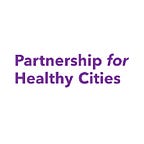World Leaders Join Bloomberg Philanthropies and WHO for Discussion on Tackling Noncommunicable Disease and Injury
On Sunday, May 21, ahead of the World Health Assembly, Bloomberg Philanthropies and the World Health Organization (WHO) hosted a panel discussion on the critical role of national and local leaders in advancing public health and leading the global charge to reduce noncommunicable diseases (NCDs) and injuries. The event highlighted the newly-formed Partnership for Healthy Cities initiative, announced last week by WHO Global Ambassador for Noncommunicable Diseases Michael R. Bloomberg.
The Partnership for Healthy Cities unites cities around the world whose mayors are committed to promoting healthier lives and safer environments for their citizens. NCDs, including heart disease, cancer, chronic respiratory diseases, diabetes and others, and injuries resulting from road traffic crashes, and other causes kill 44 million people globally each year. With the majority of the world’s population now living in urban settings, cities and their leaders are uniquely positioned to improve the health of citizens and prepare cities to thrive in the 21st century.
Moderated by Albertina Torsoli, Bloomberg News Geneva bureau chief, the discussion included remarks from Michael R. Bloomberg via video, as well from Dr. Kelly Henning of Bloomberg Philanthropies and Dr. Matshidiso Moeti, WHO regional director for Africa.
Panelists included Dr. Joana Maciel, secretary of health for the city of Fortaleza in Brazil; H.E. Prof Yifru Berhan Mitke, minister of health, Ethiopia; Martin Bowles, secretary of the department of health, Australia; and Dr. Adam Karpati, senior vice president, public health programs, Vital Strategies.
The wide-ranging discussion focused on the challenge of tackling NCDs and the importance of continued focus on long-term strategies to encouraging people to live healthier. Maciel, whose city was one of the first to join the Partnership for Healthy Cities, emphasized the importance of integrating alternative modes of transportation in Fortaleza — including bikes and busses — to create a healthier city, while also focusing on safety. In the last year alone, Fortaleza has seen a 36 percent reduction in traffic fatalities.
The panel also discussed the unique challenges that obesity and physical inactivity pose to populations, and the need to think broadly about solutions. Interventions targeting very young children are critical, Bowles said. Mitke added that focusing on children from five to 10 years of age is important to creating a health-conscious generation that will struggle less with NCDs than the current one.
Panelists noted that engaged mayors, sharing of best practices and understanding the role technology plays in tackling NCDs are key to making progress. While in Australia, friendly competition among cities may drive policies to help mitigate NCDs, in other areas, Mayors must have political courage to go up against industry to create change.
In addition to Fortaleza, Partnership cities include: Accra, Addis Ababa, Ahmedabad, Almaty, Amman, Bandung, Bangalore, Bogotá, Boston, Buenos Aires Cali, Cape Town, Chicago, Dhaka, Guadalajara, Ho Chi Minh City, Jakarta, Kampala, Kathmandu, Kiev, Kingston, Kigali, Kuala Lumpur, León, London, Medellín, Melbourne, Mexico City, Montevideo, Mumbai, Philadelphia, Quezon City, Quito, Rio de Janeiro, San Francisco, Santiago, Sao Paulo, Seoul, Shanghai, Tianjin, Toronto and Ulaanbaatar.
Over the next 18 months, participating cities will work with Bloomberg Philanthropies and technical experts including WHO and Vital Strategies to implement one of 10 evidence-based policy interventions, including creating a smoke-free city, banning tobacco advertising and reducing road crash deaths by lowering speed limits. Bloomberg Philanthropies has committed $5 million USD in seed grants, as well as advice and help from public health experts, to support committed cities in developing and implementing policies to address NCDs and injuries. As part of the Partnership, cities also have access to a global network of mayors, which will improve collaborations and the sharing of good practices and lessons learned.
For more information visit: http://www.partnershipforhealthycities.bloomberg.org
